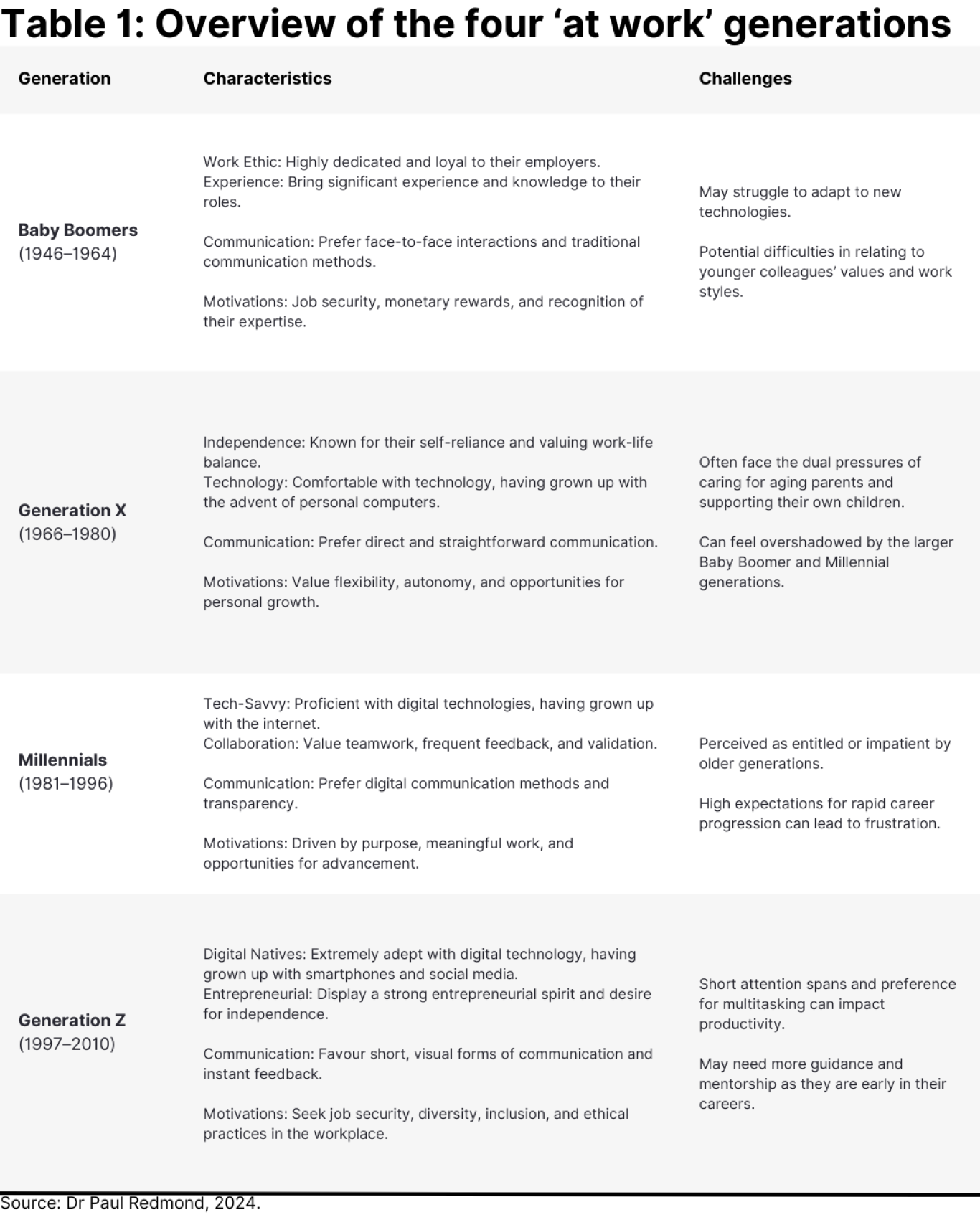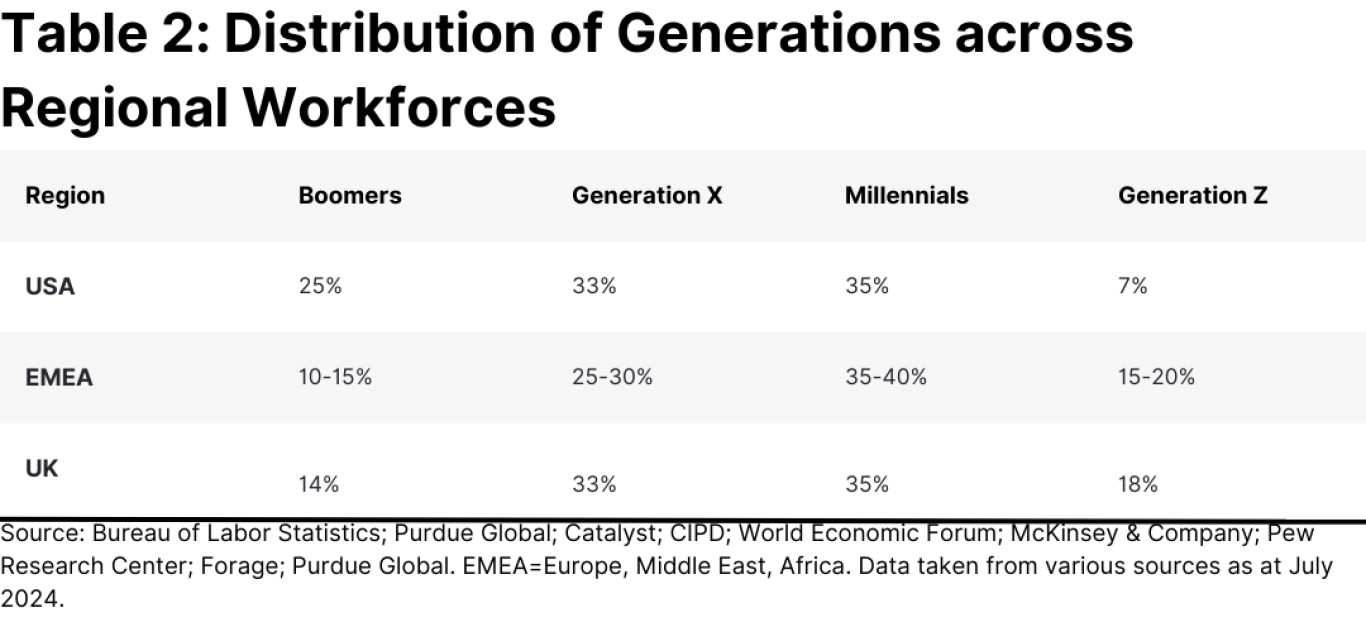In today’s increasingly diverse workplace, understanding demographic shifts is crucial for businesses aiming to maintain a competitive edge – and for investors seeking to identify the winners. During my recent presentation at the Janus Henderson London Knowledge Exchange event, I provided an overview of my ongoing research into generations and the future of work. I concluded with a summary of a recent research project undertaken in partnership with Janus Henderson, which explored the impact of technology on the four ‘working’ generations. The research also explored each generation’s attitudes to sustainability, environmentalism, and other contemporary social and technological issues.
This article provides a summary of the main points discussed in the presentation and highlights the value of generational research for understanding future market drivers.
The nature of demographic shifts
The term ‘demographic shift’ describes changes in the age distribution, population size, and geographic dispersion of individuals and groups over time. These transformations typically occur due to factors such as rising and falling birth and death rates, and changes in societal norms and behaviours. For businesses, understanding demographic shifts can help develop strategies for responding to fluctuating consumer demands. It can also help reduce staff turnover and cultivate a talent pipeline.
In recent years I have provided consultancy to hundreds of organisations around the world. I have found that demographic shifts are strongly affected by the spread of technology, particularly smartphones, tablet devices, and social media. Currently, according to the Office of Communications, which regulates broadcasting and telecommunications in the UK, around one-in-five under-four-year-olds in the UK has access to a smartphone, while approximately fifty percent of teenagers consider themselves ‘addicted’ to their phone.
In turn, the ubiquitous spread of technology is leading to greater individualisation within society while slowing down life trajectories. Technology is making us more individual than ever, while keeping us psychologically younger, for longer.

































